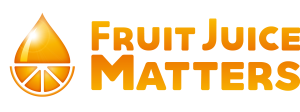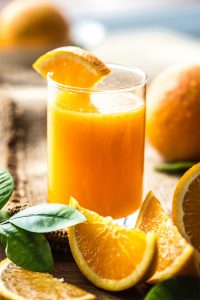ADVERTORIAL FEATURE
 Although the public knows that fruits and vegetables contain many different nutrients that are beneficial for health, data from the UK National Diet and Nutrition Survey1 shows that a huge majority (69%) of adults and teenagers (92%) are not meeting the 5 A Day recommendation for fruit and vegetables. A small 150ml glass of 100% fruit juice counts as one portion of fruit and can help people get closer to the 5 A Day target. In fact, research suggests that fruit juice drinkers are 42% more likely to meet the 5 A Day recommendation than non-drinkers.2
Although the public knows that fruits and vegetables contain many different nutrients that are beneficial for health, data from the UK National Diet and Nutrition Survey1 shows that a huge majority (69%) of adults and teenagers (92%) are not meeting the 5 A Day recommendation for fruit and vegetables. A small 150ml glass of 100% fruit juice counts as one portion of fruit and can help people get closer to the 5 A Day target. In fact, research suggests that fruit juice drinkers are 42% more likely to meet the 5 A Day recommendation than non-drinkers.2
Public confusion persists about the purity of 100% fruit juice – whether it contains added sugars or even what portion size to consume. Adding to the confusion, a recent survey of health professionals, found that 63% of respondents believed 100% fruit juice contained added ingredients such as sugar, colourings and preservatives,3 which is not the case.

100% fruit juice is strictly controlled by the European Directive,4 which means nothing can be added or taken away. This includes sugar, preservatives, colourings, stabilisers, flavourings and even water. Therefore, when a label states ‘100% orange juice’, only pure orange juice made from whole oranges will be inside. Contrary to popular belief, one 150ml glass of 100% orange juice contains the juice of only 1-2 medium sized oranges5 and the vitamins, minerals, water content and natural sugars will reflect what was in the original fruits used to make the juice.
Pure orange juice is known as a rich source of vitamin C, but there is less awareness about the other valuable nutrients contained within it. A small 150ml glass of 100% orange juice is also a source of folate and potassium and contains citrus flavonoids, such as hesperidin. Potassium and folate are nutrients found to be lacking in the diets of some groups in the UK1 and are essential for normal functions of the body.
Folate is particularly important for expectant mothers as it contributes to the growth of maternal tissues during pregnancy and low maternal folate is a risk factor in the development of neural tube defects in the developing foetus. Further, folate contributes to normal psychological function, helps the immune system work normally and helps reduce tiredness and fatigue. Potassium is essential for water and electrolyte balance in the body, helps muscles to work normally, contributes to the function of the nervous system and supports the maintenance of normal blood pressure.
Fruits are recognised as a dietary source of polyphenols such as flavonoids and carotenoids; 100% fruit juices also contain high levels of these natural plant pigments. In particular, 100% orange juice contains a type of citrus flavonoid called hesperidin. Emerging evidence6 suggests that hesperidin may impact positively on microvascular function in humans and thus may be a contributing factor in the cardiovascular benefits of 100% orange juice.
The Fruit Juice Matters initiative is pleased to share a new short video with science presenter, Stefan Gates, to explore the purity and nutritional benefits of 100% orange juice in more detail.
Watch the video below and learn more.
References: 1. NatCen Social Research, MRC Elsie Widdowson Laboratory, University College London. Medical School. (2018).; 2. NatCen Social Research, MRC Elsie Widdowson Laboratory, University College London. Medical School. (2017).; 3. Ruxton C (2018) What do Europe’s health professionals think about fruit juice? CN Focus 10: 36-38; 4. https://aijn.eu/en/publications/key-eu-legislation/the-eu-fruit-juicedirective.; 5. Ringblom U (ed.) (2017) The Orange Book. Tetra Pak: Lund.; 6. Morand C, et al. (2011) Hesperidin contributes to the vascular protective effects of orange juice: a randomized crossover study in healthy volunteers. Am J Clin Nutr 93: 73-80.